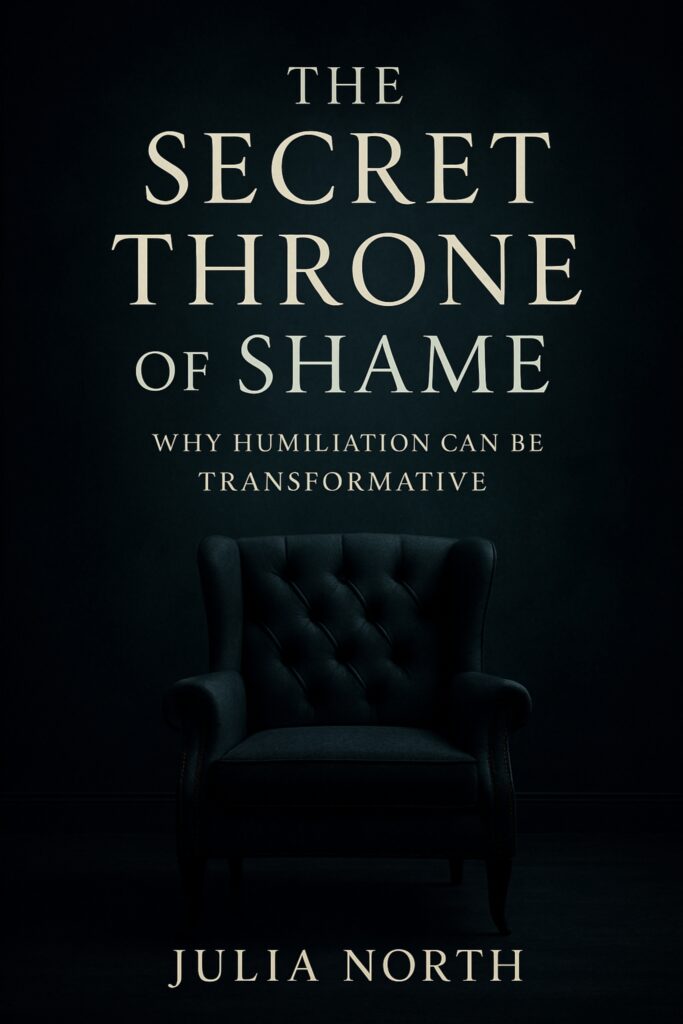Fear, anger, grief, even guilt — these emotions are dissected endlessly in therapy rooms, research journals, and self-help manuals. But one emotion sits uneasily at the edge of language, rarely addressed directly, and almost never welcomed: shame.
Shame is the most taboo emotion in psychology not because it is rare, but because it is everywhere. It infects identity, corrodes self-worth, and hides behind more palatable feelings. It is the silent force shaping addictions, eating disorders, social anxiety, perfectionism, narcissism, and depression. Yet it resists exposure, because the very act of bringing shame into the open feels shameful.
To name shame is to expose yourself. To study it is to touch something raw, destabilising, and contagious. That is why psychology often prefers to speak in softer terms — “self-esteem issues,” “negative self-image,” “low confidence.” But the occult truth is harsher: shame is the throne upon which so much psychic suffering sits.
Why Shame Is Different
Unlike guilt, which focuses on what you did, shame focuses on who you are. Guilt can be repaired — you apologize, make amends, change your behaviour. Shame whispers that nothing you do will ever be enough, because you yourself are broken.
This is why shame burns deeper. It fuses with identity. It bypasses logic and lodges in the nervous system. It is not “I made a mistake,” but “I am the mistake.” And because shame is so intolerable, people will do anything to avoid feeling it — attack, withdraw, perform, control, numb, or project it onto others.
The Archetype of the Unseen Wound
In psychological terms, shame is often the hidden wound beneath other symptoms. A perfectionist doesn’t only strive for excellence; they are trying to outrun shame. The narcissist doesn’t only demand admiration; they are armouring against shame. The addict doesn’t only chase intoxication; they are numbing unbearable shame.
Shame is the shadow archetype in the psyche — the throne beneath the masks. To confront it requires stripping away every defense, every persona, every protective lie. No wonder it is taboo. Few wish to walk willingly into the chamber where shame reigns.
Why Therapy Avoids It
Psychologists often tiptoe around shame. Clients will admit anger, sadness, even guilt, but rarely shame. The word itself feels radioactive. To name it aloud is to risk exposure, humiliation, collapse.
Therapists, too, often fear it. Addressing shame without sensitivity can retraumatize or shut down a client completely. Shame triggers withdrawal; the client may vanish into silence or abandon therapy entirely. As a result, many practitioners skirt around it, using euphemisms instead of confronting the raw word.
But this avoidance has a cost: what remains unspoken continues to rule from the shadows.
Shame as Social Control
On a cultural level, shame is one of the oldest tools of control. Societies shame bodies, appetites, sexualities, failures, weaknesses. To shame is to discipline. Families pass shame down like heirlooms, binding children to silence and obedience. Institutions weaponize shame to maintain hierarchies — from religion’s doctrine of sin to the modern obsession with online “cancellation.”
Shame thrives because it isolates. Unlike anger, which seeks an enemy, or grief, which longs for witness, shame drives you inward, convincing you that you are alone and unworthy of connection. It is the perfect prison guard, because it makes you lock your own cell.
The Occult Dimension of Shame
From an occult or archetypal perspective, shame functions as an initiation. It is the psychic equivalent of being stripped naked before the tribe — exposure so total it annihilates the persona. In mythology, heroes descend into humiliation before they ascend into sovereignty. The Fool is mocked, the goddess is shamed, the king is dethroned.
Why? Because shame burns away illusion. It dismantles false masks. What survives the fire of humiliation is raw, unmediated presence — the self that no longer fears exposure. This is why shame, though taboo, can also be alchemical. When endured and transmuted, it becomes authority. Those who survive the throne of shame emerge unshakable.
Shame’s Link to the Body
Shame is not just psychological. It is somatic. The lowered head, the flushed cheeks, the collapsed chest, the avoidance of eye contact — these are primal signals of submission. Shame contracts the body, reducing space, hiding vulnerability.
Because it is carried in posture and breath, shame often lingers long after conscious memory fades. Adults may still carry the embodied shame of childhood humiliations — the moment a parent mocked, a teacher ridiculed, a peer rejected. These embodied memories shape how one walks into rooms, speaks in public, or even meets another’s gaze.
Healing shame, therefore, cannot be purely cognitive. It must also be somatic: reclaiming posture, breath, and voice.
Why It Remains Taboo
So why is shame the most taboo emotion in psychology? Because to study it is to risk contagion. Naming it invokes it. Looking directly at it feels like humiliation in itself. Both clients and practitioners flinch away, preferring safer emotions.
But taboo does not mean powerless. It means potent. Shame’s very avoidance signals its importance. The most forbidden door is often the one hiding the treasure.
Breaking the Taboo
The work of confronting shame is slow, delicate, and dangerous — but transformative. It begins with naming. Simply being able to say “I feel shame” breaks the spell. Then comes witnessing — allowing another to see what shame convinced you must stay hidden. Finally comes transmutation — learning to sit on the throne of shame without being annihilated by it.
This is not self-help. It is shadow work of the most difficult kind. It is the descent into humiliation and the emergence into sovereignty. The very act of facing shame reclaims authority from the places it once held you captive.
The Throne Beneath Us All

Shame is taboo because it is universal. It is the hidden throne beneath countless psychological symptoms and cultural rituals. It is avoided because it feels like death. But in that symbolic death lies rebirth.
To confront shame is to confront the deepest wound of the psyche. To survive it is to reclaim power no one can take from you. This is why The Secret Throne of Shame insists on breaking the silence. Because until shame is faced, it rules. And once it is faced, it becomes the very ground of sovereignty.

